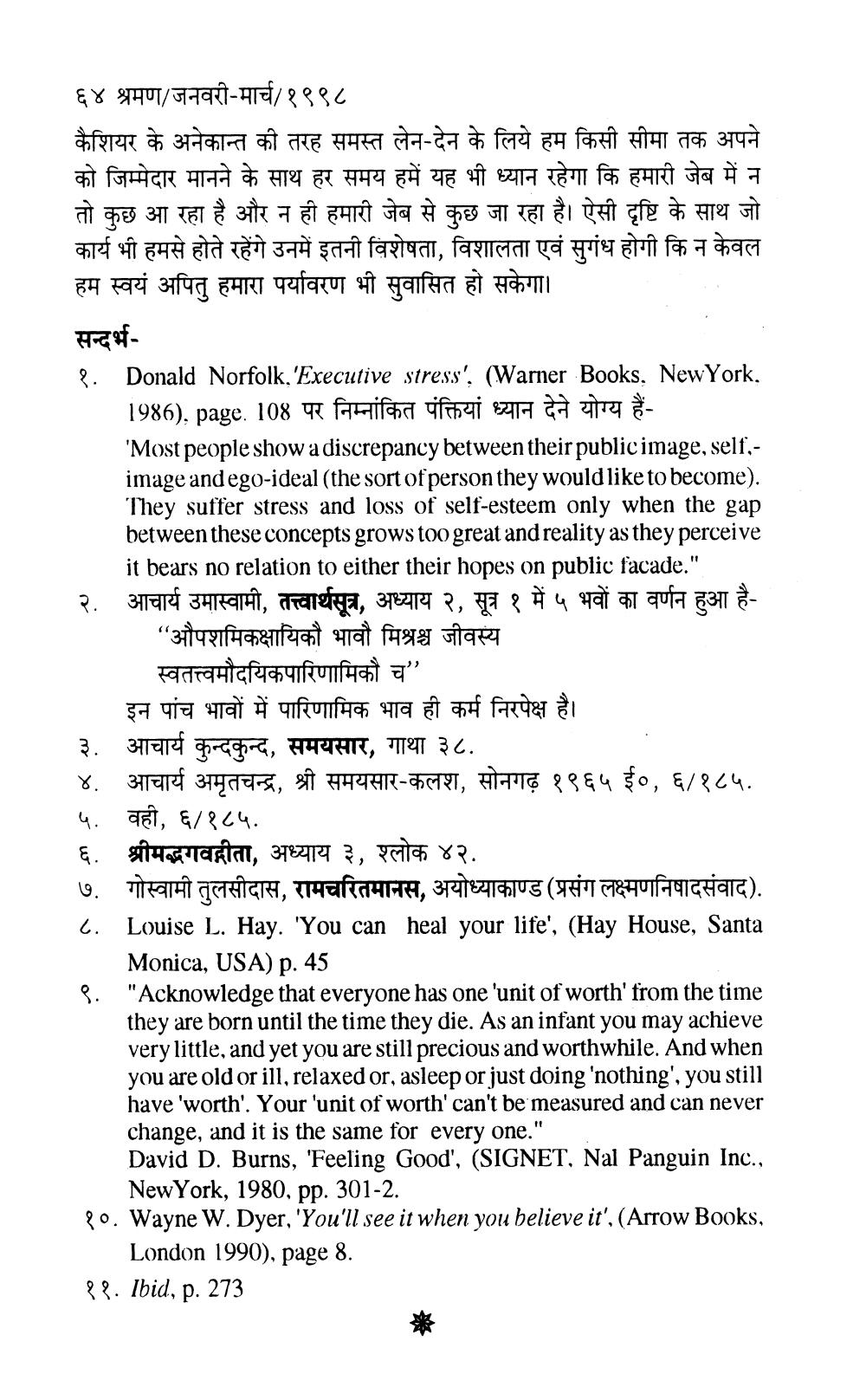________________
६४ श्रमण/जनवरी-मार्च/१९९८ कैशियर के अनेकान्त की तरह समस्त लेन-देन के लिये हम किसी सीमा तक अपने को जिम्मेदार मानने के साथ हर समय हमें यह भी ध्यान रहेगा कि हमारी जेब में न तो कुछ आ रहा है और न ही हमारी जेब से कुछ जा रहा है। ऐसी दृष्टि के साथ जो कार्य भी हमसे होते रहेंगे उनमें इतनी विशेषता, विशालता एवं सुगंध होगी कि न केवल हम स्वयं अपितु हमारा पर्यावरण भी सुवासित हो सकेगा। सन्दर्भ१. Donald Norfolk.'Executive stress'. (Warner Books. NewYork.
1986). page. 108 पर निम्नांकित पंक्तियां ध्यान देने योग्य हैं'Most people show a discrepancy between their publicimage, self,image andego-ideal (the sort of person they would like to become). They suffer stress and loss of self-esteem only when the gap between these concepts grows too great and reality as they perceive it bears no relation to either their hopes on public facade." आचार्य उमास्वामी, तत्त्वार्थसूत्र, अध्याय २, सूत्र १ में ५ भवों का वर्णन हुआ है
“औपशमिकक्षायिकौ भावौ मिश्रश्च जीवस्य
स्वतत्त्वमौदयिकपारिणामिको च" इन पांच भावों में पारिणामिक भाव ही कर्म निरपेक्ष है। ३. आचार्य कुन्दकुन्द, समयसार, गाथा ३८. ४. आचार्य अमृतचन्द्र, श्री समयसार-कलश, सोनगढ़ १९६५ ई०, ६/१८५. ५. वही, ६/१८५. ६. श्रीमद्भगवद्गीता, अध्याय ३, श्लोक ४२. ७. गोस्वामी तुलसीदास, रामचरितमानस, अयोध्याकाण्ड (प्रसंग लक्ष्मणनिषादसंवाद). ८. Louise L. Hay. 'You can heal your life', (Hay House, Santa
Monica, USA) p. 45 "Acknowledge that everyone has one 'unit of worth' from the time they are born until the time they die. As an infant you may achieve very little, and yet you are still precious and worthwhile. And when you are old or ill, relaxed or, asleep or just doing 'nothing', you still have 'worth'. Your 'unit of worth' can't be measured and can never change, and it is the same for every one." David D. Burns, 'Feeling Good', (SIGNET. Nal Panguin Inc.,
NewYork, 1980, pp. 301-2. १०. Wayne W. Dyer, 'You'll see it when you believe it', (Arrow Books,
London 1990), page 8. ११. bid, p. 273




